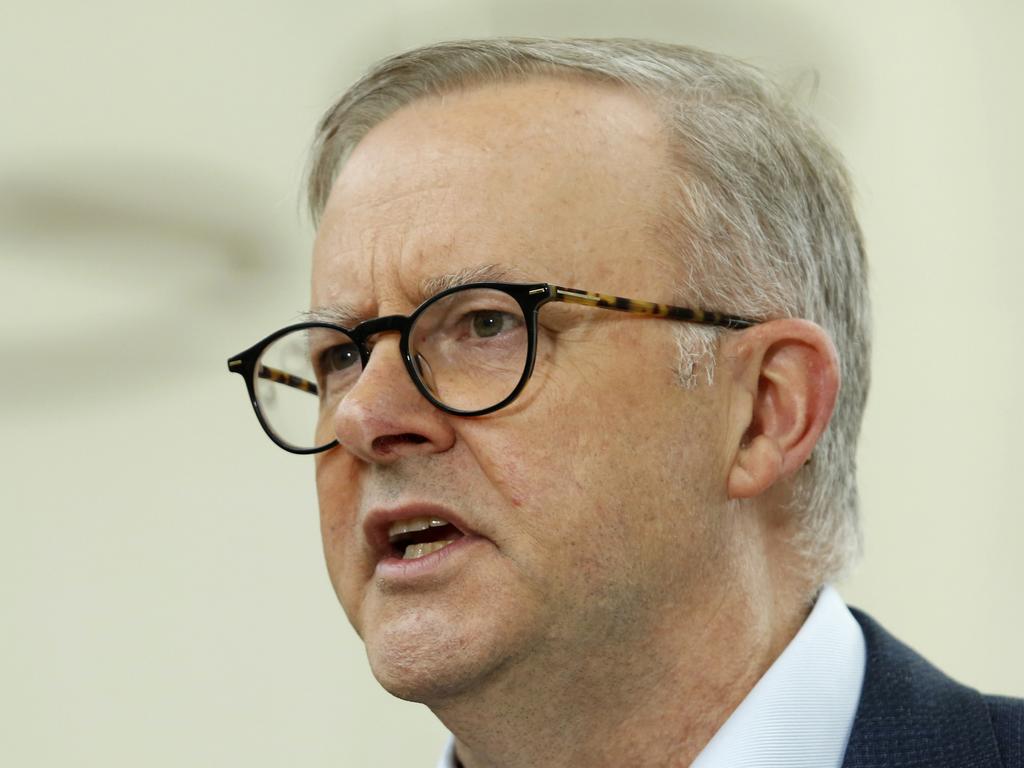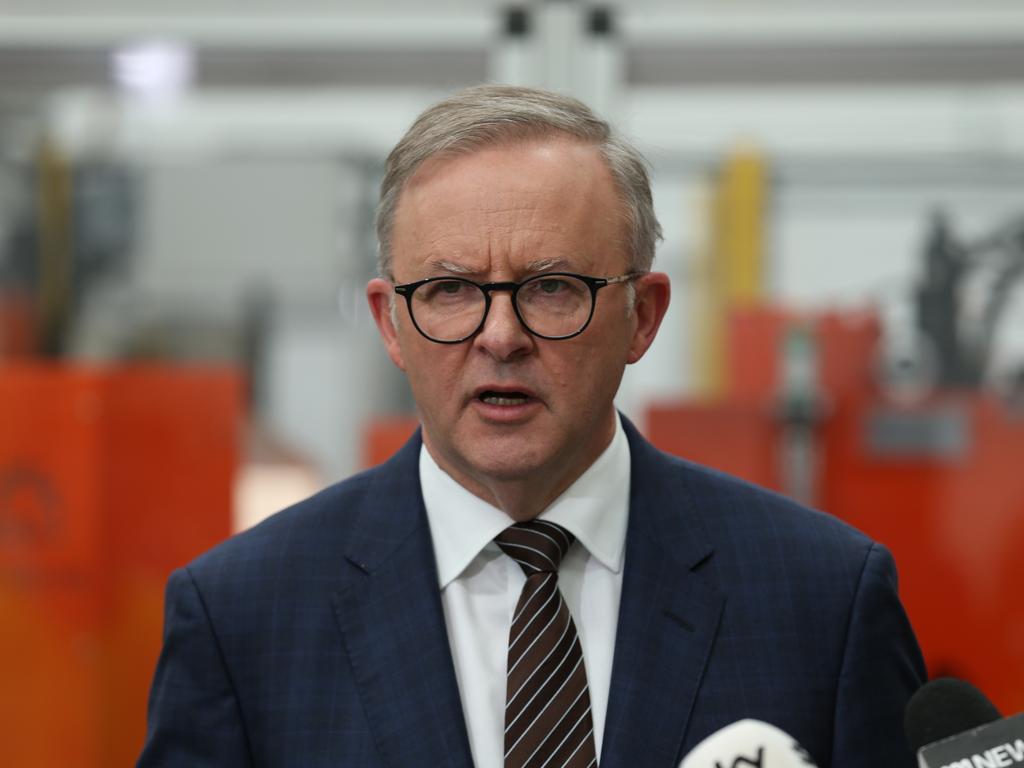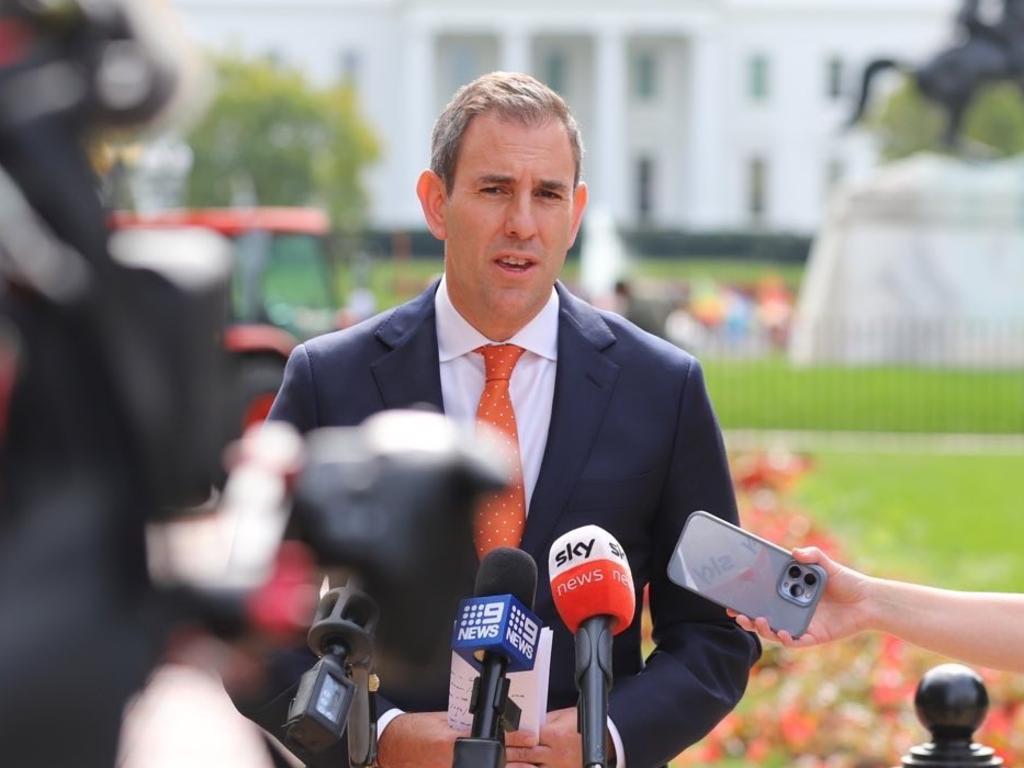Trust is PM’s key to tax reform and unlocking wealth

Chalmers’ numbers will show despite record levels of income tax receipts and ever more revenue from our resources sector, the budget is in structural shortfall. For a nation as wealthy as Australia to find itself unable to fund the demand on government services is a national disgrace. It’s testament to the lack of political courage of the Albanese opposition not to promise what actually needed to be done. It’s the dividend of going small target in the craven pursuit of a win at all costs rather than bringing to account the financial profligacy of the Abbott-Turnbull-Morrison years.
I endorse wholeheartedly Anthony Albanese keeping his word on the stage three tax cuts. He let his Treasurer have enough rope before he rightly gave it a yank. His solemn word to the electorate on this is his gold standard of political integrity and Labor’s best hope to have the conversation it now needs to have with the electorate: that as a wealthy nation with a multitude of millionaires and billionaires, those who can afford to pay more for public services need to pay more. Income tax is clearly capturing working people, consumption taxes like the GST go entirely to the states, so Albanese needs to have a conversation about the need for a wealth tax.
Only by maintaining his electoral trust on stage three can he be trusted to lead this conversation and publicly express what most within the Labor government are thinking: failing to tax the accumulation of wealth is the single biggest loophole in the tax system and needs to be fixed.
Recent tables by federal electorate showed those most impacted by the stage three cuts – and it wasn’t in the areas Australia would regard as where the wealthiest people reside.
The issue is that the wealthiest no longer pay as much in income tax as their wealth would otherwise indicate. No doubt many follow the 1991 advice of the late, great Kerry Packer: “If anybody in this country doesn’t minimise their tax they want their head read.” He also wisely added: “It’s not like you’re spending it so well that I should be donating extra.”

The issue is that income tax now falls disproportionally on wage and salary earners. Those wealthy enough to make it worth their while seek advice and, in Packer’s famous words, say: “Of course I’m minimising my tax.”
The collection of this new wealth tax shouldn’t be simply at time of someone’s passing with a death duty or when they realise the capital appreciation on a sale. It should be based on the ATO’s calculation of an individual’s net worth. Family Courts already do this when assessing the separation of assets. The ATO knows what your house and investment properties are worth, what shares you own, the balance of your superannuation account. It already has a working knowledge of every family trust and private company in Australia.
The ATO and state treasuries also have two taxes in place that provide for wealthy people to pay an annual cash amount against land tax liabilities and those on higher wages with superannuation to make annual Division 293 payments. The ATO should be able to provide a very accurate picture of the wealth of individual Australians as it already holds this data and simply needs the government authority to use it.
And just like the current superannuation charge or the land tax bill, wealthy individuals would be invoiced by the ATO to make an annual payment. The rate could be quite low, while determining whether you are wealthy enough to pay could be decided by the Albanese government as required.
Chalmers has rightly said even after we balance the budget we still have a trillion dollars of national debt to repay. Interest on that debt is only getting worse.
This conversation would be one had adult to adult. It wouldn’t be the messy Gillard carbon tax broken promise or worse the mining tax that didn’t survive a budget before it fell apart.
This would be a conversation about how to pay back accumulated national debt and continue to pay for an ever-increasing government program of help and subsidies. The small-targeters revelled in the findings of the Weatherill/Emerson report that concluded Labor lost in 2019 because it had too much ambition for Australia’s future and had the electoral courage to explain how that was to be funded, before an election.
The wealth tax will have to be taken to voters for endorsement – just as John Howard had the courage to do so in 1998 with his GST tax reform. Albanese needs to lead the conversation, to unchain just a small part of the vast wealth of Australians and introduce a broadbased wealth tax to pay for our national security, the government Australians expect and the quality services they deserve.





With the Albanese government’s first budget on Tuesday it’s about to be “Lights, camera … taxation”. They say politics is “show business for ugly people”, but as Jim Chalmers grips the Despatch Box Australians will be pleasantly surprised to see a pretty good-looking rooster laying out the budget groundwork for the conversation we have to have.